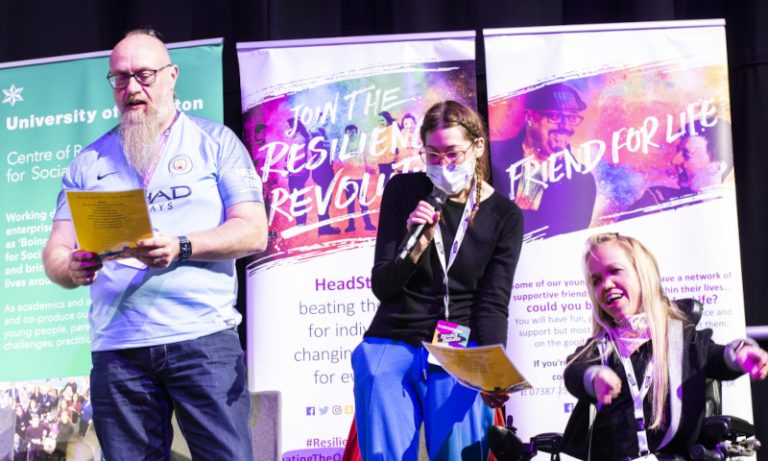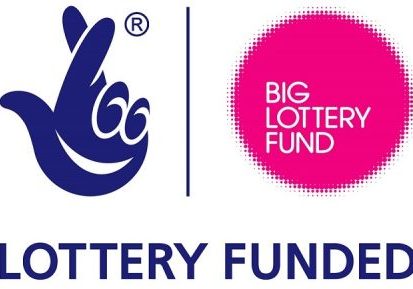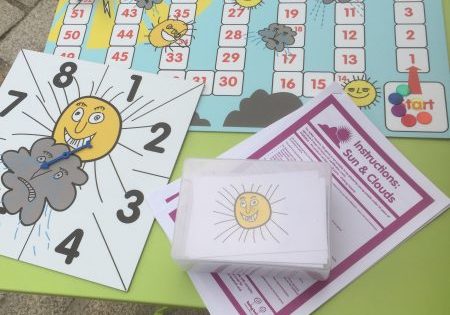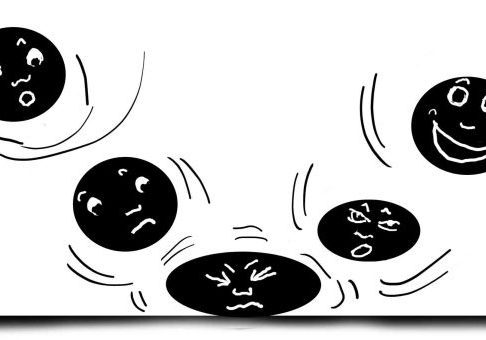Hi, this is Lisa and Mirika and recently we’ve been focused on improving accessibility for the International Resilience Revolution Conference which took place at the end of March. It was a hybrid event, with one day in Blackpool in person (but also live streamed online) and one day fully online, using Whova, a digital conference platform.
We already know that people living with a disability have been disproportionately impacted by the pandemic, so we wanted to ensure that we did as much as possible to help include everyone in our international conference. We would like to thank Adam Williams, the Resilience Revolution’s Accessibility Champion for the idea of creating an Accessibility Commitment for the conference. You can read our commitment here: Our commitment to accessibility | International Resilience Revolution Conference 2022 (brighton.ac.uk).
To put this fantastic idea into practice, the first thing we did was get together virtually to chat about barriers and some of the possible ways around them. Later, we spoke to the team at our team meeting and decided we wanted to create some guidelines for all of our presenters and speakers to follow at the conference. We decided to create this together as we both have lived experience of disabilities, we also enlisted the help of others in our team to try and capture as much variety of lived experience as possible. There were several emails back and forth as we discussed some of the day to day challenges we face ourselves, exchanging some tips and tricks along the way about how we get around these issues in our own lives.
Conference participation was free for everyone. Removing financial barriers is a great first step to increase accessibility, especially when you consider the extra costs many people with disabilities have to budget for in their everyday lives. Members of the team opened the venue the afternoon/evening before so people could get a feel of the space and identify anything additional the team could help with. The city of Blackpool has been pro-active in producing accessibility guides for venues, hotels, places to eat. We collected up this accessibility information and made it available on the page with our Accessibility Commitment. We tried to consider as much as variety possible. The thing was, we couldn’t do it alone. We needed help from the chairs and presenters to help make the content accessible. We decided to do a checklist to help them think about accessibility. A few examples of the kind of requirements we came up with were things like using large enough text with high contrast. We asked people to include alternative text with all visuals, use meaningful link text, be sure to use more than just colour to convey information. We tried to make sure that all speakers used plain English and avoided things like acronyms or scientific jargon that not everyone will be familiar with or understand. We tried to consider as many technical issues as possible too, even though many of these can be very complex. For example, we thought about how presentations, headings and tables are read and understood by screen readers. We also asked presenters to make sure that any videos used in their sessions and workshops were accessible for visually impaired and hearing-impaired people.
We sent documents with details of our requirements to all presenters and speakers prior to the conference. We also provided training for chairs and made detailed chairing guides. We included accessibility information on slides for session chairs to go through at the beginning of each parallel session. This included a few basics like how to access and use some of the interactive Whova platform functions and how to turn on closed captions. We gave trigger warnings where possible, as we believe considering mental health needs is just as important as considering physical access needs.
Lucky for us, we had different people with different needs testing spaces, digital tools, and resources. But sometimes we found organisations said things were accessible, but they weren’t – not for all of us. We are privileged to work with a diverse team of people of all ages with different needs. This makes it easier to have frank discussions around what is and isn’t accessible. We made space at the end of the conference, and later in our team meetings to reflect on what did and didn’t work.
We hope to continue building on our work around accessibility and inclusion, we acknowledge that there is always room for growth and improvement. Accessibility and inclusion are a core values for us here at Boingboing and not something to do once then consider it a finished piece of work. We hope our work can continue to grow and adapt to people’s needs and strive to keep using our inequalities imaginations to consider new ways of building on our accessibility practices and guidelines. We also plan on continuing to advocate for better and more inclusive places, spaces, tools, content, policies, and guides. But like we said, we can’t do this alone.



